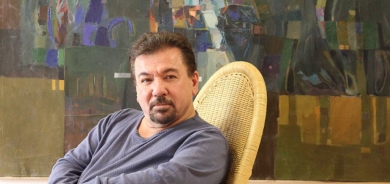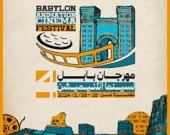Dark novel on female sex addiction wins prize in Morocco

In a trendy café in the busy Parisian neighbourhood of the Marais, you sometimes need to strain to hear Leïla Slimani. Her voice is as soft as she is discreet. As Slimani speaks, her radiant smile intact, it’s hard to imagine that this luminous 30-something wrote "In the Garden of the Ogre", which takes a cold look at sexual addiction and a woman’s descent into hell – despite her appearing to have a perfect life.
"A gutsy subject," noted novelist Christine Orban, as she handed Slimani the prize in the Morrocan city of Marrakesh last week.
Slimani is the first woman to receive the award, which is aimed at celebrating Moroccan novelists writing in French. The president of the panel said that the jury unanimously picked Slimani for her courage in addressing a taboo topic as well as for her brilliant and psychologically gripping prose.
Slimani was born and raised in Rabat. "When I write what I think about sexuality in a country where homosexuality and sex outside marriage are prohibited, that engages me. Somehow, I take risks," she said.
Like a crack junkie
“In the Garden of the Ogre” is not a romantic novel. Instead, the sexuality evoked by Slimani is dirty, sad and painful. Her character, Adèle Robinson, craves sex like addicts crave a crack pipe. Adèle is unhappy in the daily boredom of her bourgeois life. So to forget her existence, she sleeps with anyone, anywhere, seeking neither pleasure nor tenderness.
As soon as her gastroenterologist husband leaves for work, Adèle, a journalist focused on international affairs, opens the door to her second life. She seeks in men, and often strangers, "that magical feeling of touching, with her finger, the vile and obscene, the bourgeois perversion and human misery".
"Adèle can only think of that. She gets up, drinks a strong coffee in the sleeping house. Standing in the kitchen, she balances on one foot and then the other. She smokes a cigarette. In the shower she wants to scratch, to rip her body in two. She bangs her forehead against the wall. She wants us to grasp her, to break her head against the glass,” reads one paragraph.
The jury’s choice was a bold one, particularly since a few months earlier "Much Loved", Nabil Ayouch’s film about prostitutes in Marrakesh, was banned from being shown in the country after officials in Rabat deemed it "a serious affront to moral values and Moroccan women".
Slimani’s book has not only escaped censorship but was received favourably by the Moroccan public. "When I presented the book, people were very open, very curious. Moroccans are fond of debates and they are tired of the hypocrisy and the taboo that weighs on certain topics, notably sexuality," said Slimani.
‘We don’t need to write about dunes and camels’
Slimani nonetheless admitted that "things would have been much more complicated if [her] character was Moroccan or lived in Morocco”.
“Authorities in Rabat believe that if we create a Moroccan character, even in a work of fiction, we are responsible for the image of Moroccan women," she said.
"When a young North African publishes a first novel, it needs to be about Islam, identity, Maghreb, immigration, etc. I also wanted to say that a North African in France has access to universal experiences and is not obliged to mention dunes, camels and mosques,” said Slimani, who abhors the eternal question of identity that people always want to bring her back to.
Slimani was born in 1981 in Rabat to a mother who is part French (from Alsace) and part Algerian, and a Moroccan father, both of whom are "very liberal" and to whom she dedicated the book.
"My parents were lovers of books and they raised us in a manner that viewed freedom and subversion as indispensable," Slimani said. After attending French school in Rabat she left for France, where she attended Sciences Po university in Paris and then studied in the media department of the ESCP business school. After graduation she was hired by Jeune Afrique newspaper, where she worked for five years.
But "life in a newsroom is not [her] thing", she admitted with a smile. She resigned to devote herself to writing. After a first autobiographical novel remained in her drawer – "In writing, you have to throw out [your work]," she said – it was the DSK affair in 2011 that gave her the idea for her novel. DSK is a reference to former International Monetary Fund chief Dominique Strauss-Kahn, who had a spectacular fall from grace after he was accused of assaulting a New York hotel maid.
She was breastfeeding her son, who she has from her marriage to a French banker, and watching TV coverage of the DSK affair when the idea for her book struck her.
‘Human darkness fascinates me’
"I watched these images of a defeated, pale man. I was intrigued by the fact that a man who has control of his life and who has risen so high was able to lose everything for an affair," she said. The idea of how to portray her female character dawned on her quickly. "I like anti-hero women,” she said. “Negative female characters interest me.”
Slimani plunged into reading Madame Bovary, Anna Karenina and women who are trying "to escape their lives". Gradually, the character of Adèle Robinson emerged.
"Human darkness fascinates me, I find it intriguing. And there are few female characters who are explored in this light," she said.
The soft-spoken writer also confided that she has started writing a new novel. "With this, it's even worse, I do not even know how I'll reach the darkness of this being," she said, with a laugh. It sounds promising.
FRANCE24















